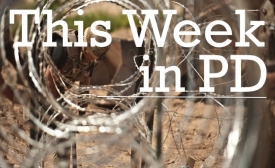iran
Nuclear talks between Iran and six world powers could continue right up to Tuesday’s deadline, U.S. officials said Sunday, as the two sides sought to hammer out the outlines of a final deal. The officials pointed to several unresolved issues in the negotiations, including the phasing of suspension and then lifting of United Nations Security Council sanctions on Iran, and the activities Tehran will be able to engage in during the final years of an agreement, which is now expected to last 15 years.
It is also perhaps a demonstration of Obama’s very challenging efforts to establish an “equilibrium” between Shia and Sunni forces throughout the Middle East region, especially in the Gulf. Obama explicitly made such equilibrium a strategic aim in the region in his famous interview with The New Yorker’s David Remnick 14 months ago.

Security concerns between states can hinder effective public diplomacy.
While American negotiators maintained tight secrecy at the nuclear talks here, President Hassan Rouhani of Iran took to Twitter late Thursday to describe a letter he sent to President Obama and other world leaders justifying Iran’s positions.
The world is watching for what could turn out to be either a historic achievement for international diplomacy -- or, just as easily, a disappointing failure -- as negotiators sit down this week in the tranquil lakeside city of Lausanne, Switzerland, to hammer out a framework nuclear deal with Iran before March 31.
In a move aimed at easing Western sanctions and its economic isolation, along with promoting higher education development and regional cooperation, Iran is continuing to establish more branch campuses of its universities across the Arab states.
The Obama administration began its dealings with the Arab world on a hopeful note, as exemplified by the President's 2009 Cairo speech. Since then, despite increased U.S. public diplomacy efforts in the region, American policy has been perceived as hostile, or at least uncaring, toward Arabs.







